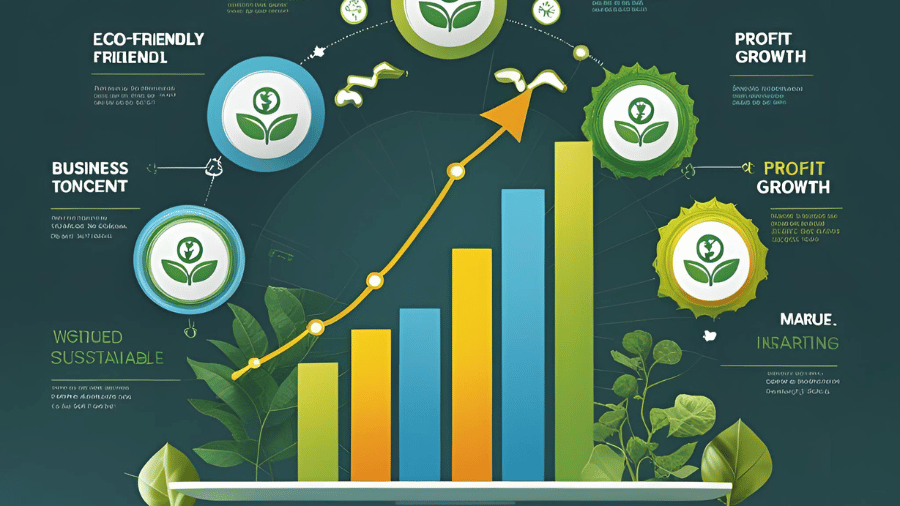Sustainable Business Models: Integrating Profit with Purpose

In today’s fast-evolving global economy, the concept of sustainable business models has taken center stage as companies strive to balance profitability with social and environmental responsibility. Sustainable business models in 2025 are no longer just a niche approach but a mainstream strategy that drives long-term growth while addressing pressing ecological and societal challenges.
Businesses embracing sustainability are redesigning their operations to reduce waste, minimize carbon footprints, and foster ethical practices across their supply chains. This shift is driven not only by regulatory pressure but also by increasing consumer demand for transparency and accountability. Customers want to engage with brands that demonstrate genuine commitment to environmental stewardship and social impact.
One of the leading frameworks shaping sustainable business models is the circular economy, which emphasizes resource efficiency by designing products and services that keep materials in use for as long as possible. Companies adopting circular practices focus on recycling, reusing, and refurbishing rather than the traditional linear “take-make-dispose” approach. For example, in the electronics industry, firms are launching programs to collect and refurbish used devices, extending product life cycles and reducing e-waste. This approach not only conserves resources but also opens new revenue streams and customer loyalty opportunities.
Environmental, Social, and Governance (ESG) criteria are becoming essential metrics for investors evaluating company performance. Sustainable business models integrate ESG factors into decision-making to ensure ethical governance, positive social impact, and environmental responsibility. As a result, companies with strong ESG ratings often attract more investment and enjoy better risk management. According to a report by McKinsey, businesses with robust ESG strategies outperform their peers financially and are better positioned to navigate future disruptions.
Consumer behavior is a powerful driver of sustainable business transformation. Increasingly, buyers prefer brands that align with their values, pushing companies to innovate with eco-friendly packaging, fair trade sourcing, and transparent reporting. Social media and digital platforms amplify these preferences, holding companies accountable and rewarding authentic sustainability efforts. Brands like Patagonia and Unilever have successfully integrated sustainability into their core identity, proving that profit and purpose can coexist.
Technology plays a critical role in enabling sustainable business models. Digital tools facilitate supply chain transparency, energy efficiency, and carbon tracking. Artificial intelligence (AI) and blockchain are used to verify product provenance, ensuring ethical sourcing and reducing fraud. Smart manufacturing technologies optimize resource use, while data analytics help companies identify areas for improvement and measure impact. Investing in green technology not only helps the environment but also enhances operational efficiency and resilience.
Despite the growing momentum, transitioning to sustainable business models requires overcoming significant challenges. Initial investments can be high, and benefits often accrue over the long term, which may deter some companies. Moreover, aligning sustainability with profitability demands cultural change and cross-functional collaboration. Leadership commitment is essential to drive these initiatives and embed sustainability into corporate strategy.
For businesses embarking on this journey, a strategic roadmap can facilitate success. This includes setting clear sustainability goals aligned with the United Nations Sustainable Development Goals (SDGs), engaging stakeholders at all levels, and fostering innovation. Collaborating with industry partners and NGOs can amplify impact and share best practices. Additionally, transparent reporting through frameworks such as the Global Reporting Initiative (GRI) builds trust with customers and investors.
Sustainable business models also foster inclusive growth by promoting diversity, equity, and fair labor practices. Companies that prioritize social responsibility contribute to healthier communities and a more stable economic environment. This holistic view of value creation enhances brand reputation and stakeholder relationships, creating a virtuous cycle of success.
Businesses interested in integrating sustainability into their models can learn from global leaders and case studies. For example, IKEA’s commitment to renewable energy and sustainable sourcing has significantly reduced its carbon footprint while maintaining competitive prices. Similarly, Danone’s focus on regenerative agriculture and community engagement illustrates how aligning business practices with ecological and social goals drives innovation.
Readers seeking a broader perspective on technology’s role in business transformation may find our blog on AI Co-Pilots at Work: Revolutionizing Productivity in 2025 insightful. Additionally, our post on Green Technology in 2025: Smart Solutions for a Sustainable Future explores the cutting-edge innovations powering eco-friendly business practices.
In conclusion, sustainable business models in 2025 represent a powerful evolution in how companies create value. By integrating profit with purpose through circular economy principles, ESG investing, and ethical innovation, businesses can achieve long-term success while contributing positively to society and the planet. This holistic approach is not only good for the environment but also makes strong business sense in a world where consumers, investors, and regulators increasingly demand responsibility. Embracing sustainability today is a strategic imperative that prepares businesses to thrive in tomorrow’s economy.


